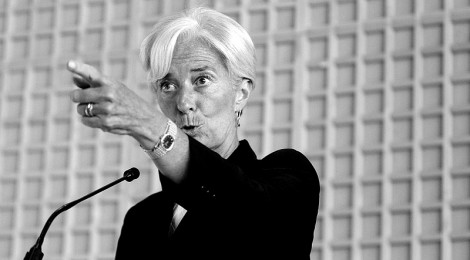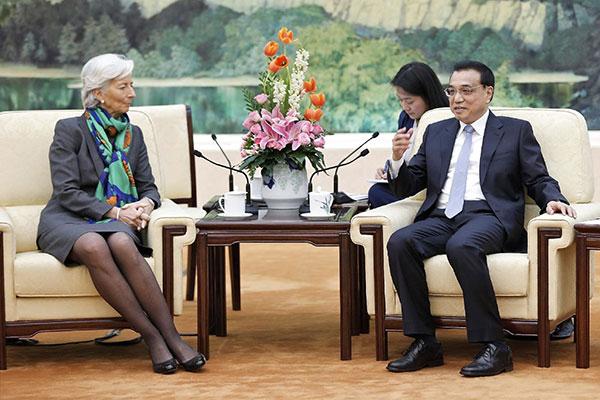
IMF Christine Lagarde at the China Development Forum
The three-day China Development Forum (CDF) kicked off at the Diaoyutai State Guesthouse in Beijing last Saturday. The CDF is a large-scale and high-profile international conference, happening right after the National People’s Congress and the Chinese People’s Political Consultative Conference each year. It is approved by the State Council and sponsored by the Development Research Center of the State Council, a proxy for one of the Communist government’s planning agencies, which formulates economic and social policy for the government and the Communist Party’s central leadership.
CDF sticks to the principle of “engaging with the world for the common prosperity” and is supposed to serve as an important platform for Chinese government to carry out exchanges and discussions with global business elites, leaders of international organizations, as well as foreign and Chinese renowned scholars. Initiated in 2000, its mission is to bring remarkable contributions for the policy exchange and international collaborations between China and the world. Also, considering the importance of the destiny of Chinese economy for global prospects, the China Development Forum is to be watched closely to understand how Chinese leaders view the challenges ahead.

Chinese prime minister, Li Keqiang, declared at the Forum that China will prevent from sustaining its export by devaluating the currency. He reassured the Director of the International Monetary Fund (IMF), Christine Lagarde, who attended the Forum, about Beijing’s intentions and about his disapproval of currency wars – meaning competitive devaluation – on a global scale. Such scenario would not be positive – he said – neither for global economy, nor for the Chinese one, which is undergoing a transition process.
Li told Lagarde that, over the next five years, China will implement “supply-side structural reform” to stimulate the vitality of the market, will put forward the building of a legal framework, and will create an exchange rate for the RMB, to conform to the principles of gradualism, and verification. Li also reassured about the level of Chinese debt, and explained that China’s central bank has different instruments at his disposal to face financial risks.
During the CDF, Lagarde said she has been impressed by the ambitious policy agenda of the country and by its drivers towards reforms. She continued stating that the systemic transition defined by the new Five-year Plan, which has been just approved, clearly articulates President Xi’s vision of the path to “rejuvenate” the Chinese nation. IMF Director also commented the decision of including the RMB in the Special Drawing Rights Basket in last November. The decision will be implemented in October this year, to testify the increasing leadership China is exerting in the global arena, a role which is expected to grow in importance in the future, according to Lagarde. In her view, three policy imperatives can help guide China though a balanced transition: opening the Chinese economy, narrowing the gap between rich and poor, expanding innovation, entrepreneurship, and R&D investments.
At the forum, the vice-premier Zhang Gaoli, underlined the plans to intervene on the quality of growth, highlighting the need of a more innovative economy, and the urgency of containing pollution. The transition to a low-emission economy offers a great opportunity to the economic progress of the country. Furthermore, the new Five-year plan is expected to bring reforms regarding the system of urban registration (hukou), to encourage permanent immigration from the countryside, he said, which should bring along remarkable economic and social benefits.




